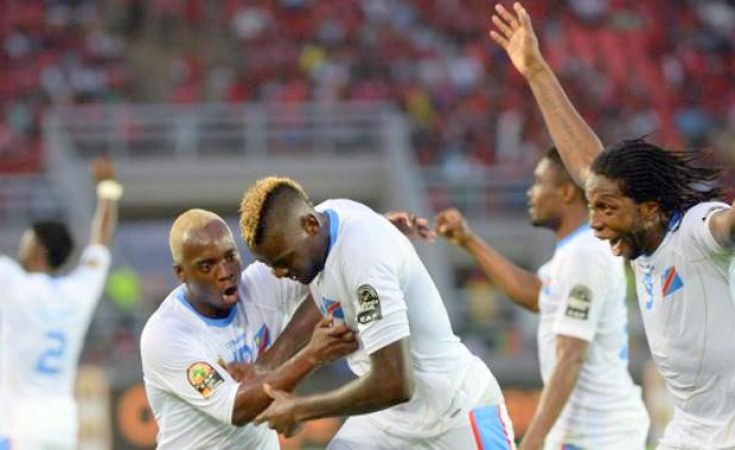For a brief run of six years, the Democratic Republic of Congo were among the leading sides in Africa, claiming two continental titles in the late 1960s and early 70s.
There have been slim pickings for the side since then. Since their last crown in 1974, the Leopards have achieved a third-place finish in 1998 but failed to build on that and were dumped out in the first round of the next tournament two years later.
Saturday's bronze medal at the Africa Cup of Nations suggests their star may be on the rise again. This Class of 2015 under coach Florent Ibenge is a young side, still developing, and if they can continue to progress, the future looks bright.
"We are a young team working with a local coach. Not many local coaches get the chance in Africa but Florent Ibenge gave me and my team mates confidence,” midfielder Chancel Mbemba told reporters after the side clinched bronze in a penalty shoot-out victory over hosts Equatorial Guinea.
Mbemba also spoke of the regard that the team has for the coach, and their willingness to follow his plan through.
"The coach is the teacher, he wants to use every student, every player. If he says: 'play right,' I'll do it, 'play left,' I'll do it,” the Anderlecht man stated.
The national team's success is perhaps a reflection of the improved showings of leading club TP Mazembe on the continental stage. Their victories in the 2009 and 2010 African Champions League - albeit with a number of foreign imports in their side - has created a renewed confidence and, it seems, determination in Congolese football.
It is no coincidence that when the national team last ruled the continent, TP Mazembe also claimed the Champions League competition in 1967 and 1968 (it was then known as the Champions Cup). They were also losing finalists in the following two years.
With a population estimated to be touching on 80 million, making the country Africa's fourth most populous, there are plenty of youngsters to mould into footballing talent - though of course this is no guarantee of success.
The key now is for the country not to let this achievement become another once-off and to continue to grow and develop.
A kind draw in the World Cup qualifiers could see them make the next step - an appearance on the global stage again for the first time since 1974.


